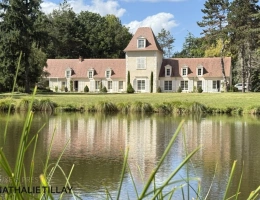
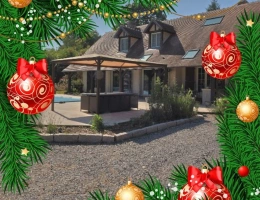
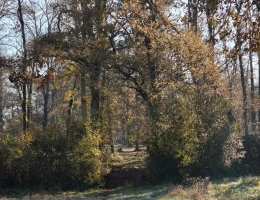
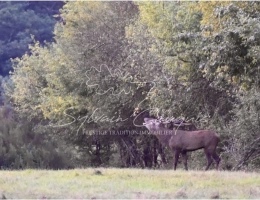
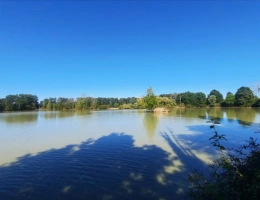
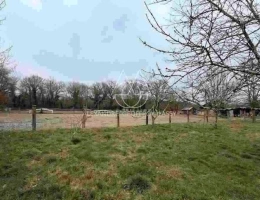
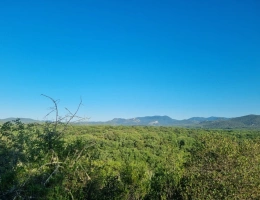
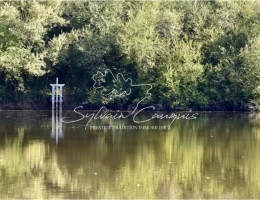
ma-propriete-forestiere.fr is the site where you will find all the categories of forest property for sale in France. Hunting properties are a sub-category of the forestry category. You will also find woods and forests, ponds, shares in Groupements Forestiers and forestry operations in the forestry category on our site.
You'll find a very wide range of hunting estates for sale in every region of France, from private owners to property professionals.
Using our search tool, you can select hunting grounds for sale by location, surface area in hectares or purchase price. If you don't find a hunting property to buy that matches your criteria, you can create an alert to be automatically informed of new hunting properties to buy that are published on our rural portal.
ma-propriete.fr is the ideal site for advertising the sale of your hunting estate, whatever its size or geographical location. By advertising your hunting property for 6 months, you will benefit from the high visibility of our portal and will be contacted by many prospective buyers of hunting properties.
Demand from buyers is high for this type of woodland property.
You can modify your advert at any time and publish it in 1 or 2 categories or sub-categories on our portal. You will have access to your ad's visibility statistics and will receive contact forms directly to your email inbox. Whether you are an owner wishing to sell a private hunting property, or a property professional, our portal will meet your needs.
There are different types of hunting depending on the geographical situation.
State hunting takes place in state-owned forests owned by the French government and managed by the Office National des Forêts (ONF). Hunting is, of course, regulated and can be awarded by auction to hunters or associations in accordance with a set of specifications.
Communal hunting grounds (or communal societies) include areas belonging to the commune and to private owners (who are free to choose to join).
Associations Communales (or intercommunales) de Chasse Agréées (ACCA): These are associations set up by one or more communes, grouping together properties with a surface area of less than a threshold of between 20 and 60 ha in a single block. They are approved by the prefect after a public enquiry and are compulsory.
Owners may object to the transfer of their hunting rights only if they exceed a defined area, or if the rights have already been transferred to an association or included by lease in a hunting territory of sufficient size. Or by conscience.
Private hunting takes place on private land that is not part of a communal hunt or an ACCA. Owners may hunt on their own land or lease their hunting rights to other hunters. The sale of hunting properties concerns private hunts.
The hunting right defined in article L422-1 of the French Environment Code is attached to the ownership of a parcel of land and follows the owner when ownership is transferred. The owner may enjoy the right directly or lease it (free of charge or for a fee).
It differs from the right to hunt, which is granted by the owner to a specific person. For example, on rented farmland, the owner holds the right to hunt and the farmer the right to hunt.
Hunting estates, located in rural areas, include all types of property where hunting is possible.
A hunting ground will not include any buildings, but will consist of several dozen or hundreds of hectares of woodland or farmland, and may also include ponds. Specific hunting installations may also be included in a property or hunting estate, such as huts, tons and gabions.
A hunting property generally comprises a hunting estate and a built-up area. If the property is fenced, article L424-3 of the French Environment Code allows the owner to hunt at any time of year, provided that an annual management plan has been drawn up and checked by the Departmental Hunting Federation. It is therefore possible to organise paid hunts on a hunting property and to monitor the presence of large and small game.
Built-up properties with hunting grounds are often prestigious residences (châteaux, manor houses, hunting lodges, etc.) but can also include more traditional dwellings. They may become a main or second home.
A hunting park is a fenced estate that may or may not include a built-up area. Be careful, fencing off a property for hunting purposes can lead to administrative difficulties if the fence hinders the free movement and migration of species.
A hunting enclosure is a hunting park that strictly complies with the criteria set out in the aforementioned article L424-3.
Hunting rights are also attached to ponds. These are areas of great biodiversity, offering very interesting hunting and fishing opportunities.
Hunting is a passion for nature lovers: small game (rabbit, pheasant, partridge, etc.), big game (stag, wild boar, roe deer, etc.), waterfowl (duck, etc.) - there's something for everyone. Be careful, though, as hunting (hounds, wild boar, driven game, stalking or shooting) is regulated by opening and closing times and the need to hold a licence.
Buying a forestry property to indulge your passion for hunting can also give you tax breaks:
Whether you're looking to buy or sell a hunting property, you can take advantage of our service to put you in touch with property professionals.
How does it work? You fill in a form describing your project. As soon as we receive it, we analyse it and pass it on to the estate agents, notaries, forestry experts, etc. who can help you.